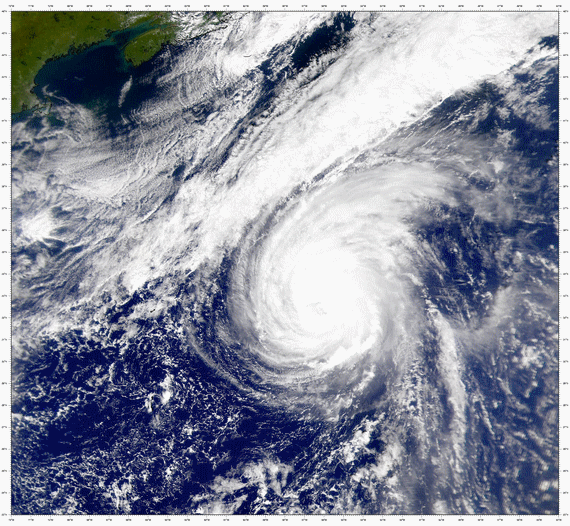Hurricane season comes every year in the Mexican Gulf, so it is no real surprise that a tropical depression in the Atlantic may well turn into Hurricane Isaac, and that it in turn may menace the Republican convention in Tampa, as attendees gather this weekend. The party has contingency plans were that to happen.

But while Floridians live with this threat, it is also true that climate change is already contributing to an increased frequency and intensity of extreme weather events. James Hansen (director of the Goddard Space Center at NASA) and his colleagues Makiko Sato and Reto Ruedy recently wrote that while increased drought and dustbowls are already occurring, as the earth warms, so too are violent storms and floods:
“The other extreme of the hydrologic cycle, unusually heavy rainfall and floods, is also expected to be amplified by global warming. The amount of water vapor that the atmosphere holds increases rapidly with atmospheric temperature, and thus a warmer world is expected to have more rainfall occurring in more extreme events. What were “100-year” or “500-year” events are expected to occur more frequently with increased global warming. Rainfall data reveal significant increases of heavy precipitation over much of Northern Hemisphere land and in the tropics (3) and attribution studies link this intensification of rainfall and floods to human-made global warming…”
For every increase of 1 degree Fahrenheit, US hurricanes will likely get 2% stronger (i.e. they are already 5% stronger than 2 centuries ago). In hurricanes, a 5% increase in ferocity matters quite a lot.
So, it is at least a little ironic that the largest convention of professional climate change deniers in the world should be menaced by an extreme weather event. Nature is not impressed by Big Oil lobbying dollars.
This is not the first time in recent months that the climate has had some fun with the deniers. North Carolina law-makers tried to make it illegal for state agencies to predict loss of coast line because of the rising seas that come with climate change.
But North Carolina can’t outlaw scientific effects. While the ocean over-all is expected to rise about 3 feet (one meter) by the end of the century, the US Atlantic coast is especially vulnerable to storm surges. So, that law that upholds the value of coastal NC land is actually just obscuring an ongoing challenge that land owners have a right to know about.



 © 2026 All Rights Reserved
© 2026 All Rights Reserved